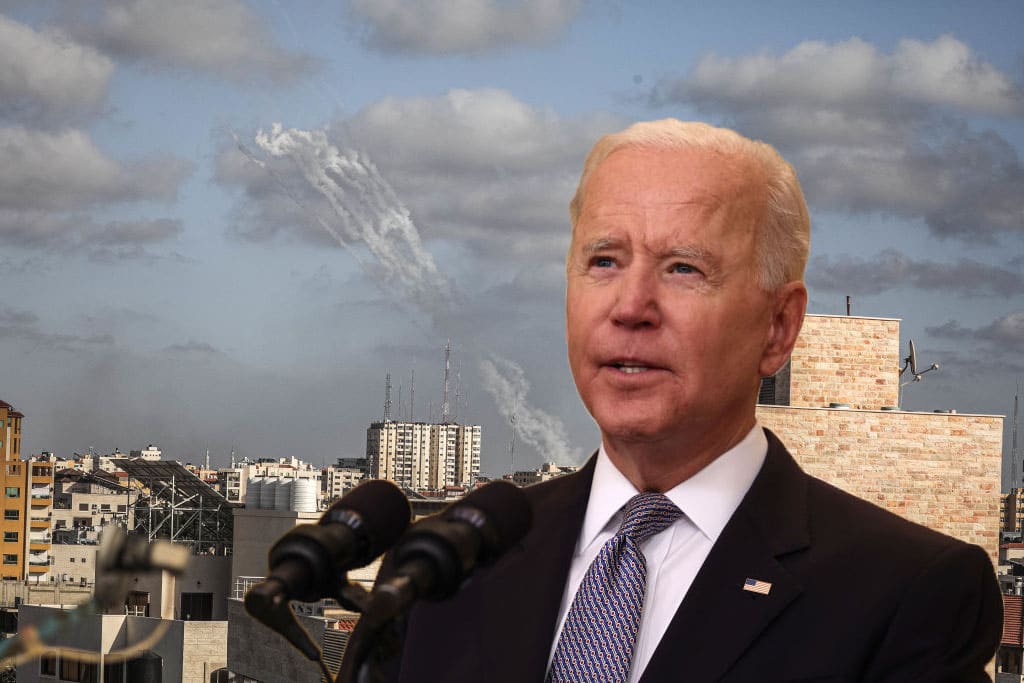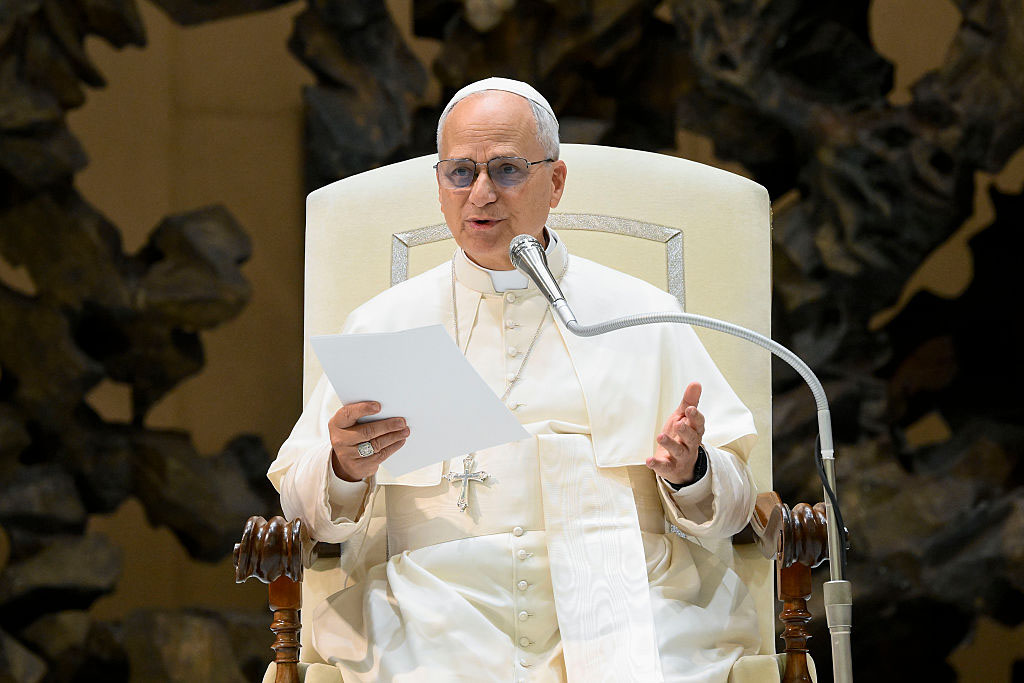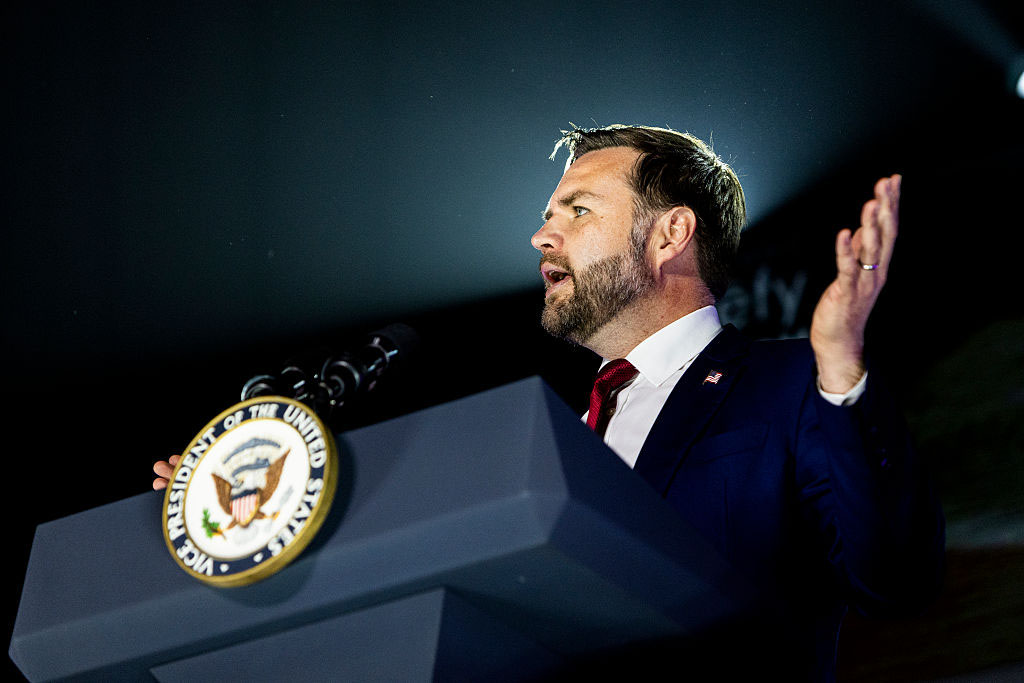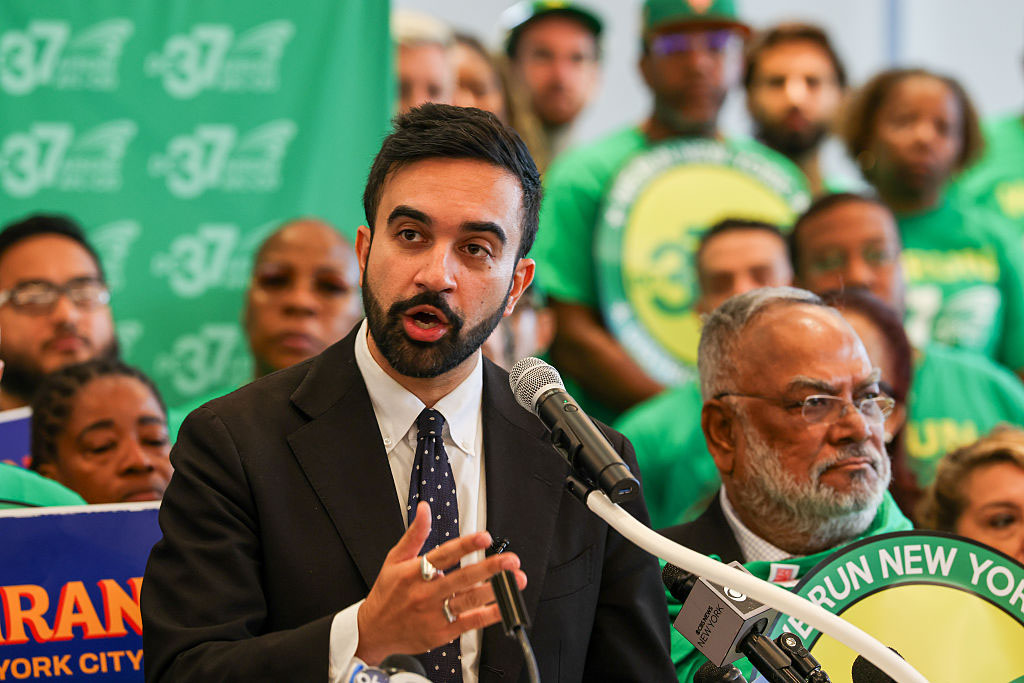
It is entirely possible that the Gaza War could play a disproportionate role in determining the next president of the United States. But what we don’t know yet is whether the war hurts Joe Biden’s chances or helps them.
Since the first days after the Oct. 7 massacre, it has become clear that the Democratic Party’s growing fissure over Israel and Biden’s ongoing challenge with his party’s progressive base were colliding in an unhelpful way for the president. Those young people, minority voters and other liberals who have never liked or trusted Biden had already become greatly dissatisfied with his presidency, and public opinion polls showed that many of them were willing to consider a third-party alternative or sit out the election altogether. Their unhappiness with Biden on what they considered to be his inadequate efforts on their priority issues such as climate change, criminal justice and voting reform was now greatly intensified by their objections to his largely pro-Israel approach to the Gaza conflict.
For many years prior to Hamas’ terrorist attacks, pro-Palestinian advocates have been assiduously courting various left-leaning constituencies. The Gaza war capitalized on these efforts and have drawn large numbers of U.S. political progressives into the pro-Palestinian camp (and some, sadly, into the ranks of Hamas defenders and apologists).
These were never Biden’s voters to begin with: They had supported Elizabeth Warren or Bernie Sanders in 2020 and only grudgingly accepted Biden when the rest of the field coalesced around him as the party’s best chance of defeating Donald Trump. Even in the best of times, he had their heads but never their hearts. And post-Oct. 7 polling showed that Biden’s margins among Black and Latino voters were at historic lows, and that he was actually losing Generation Z after carrying that age group by more than 20 points four years ago.
As the war continued, Biden has been increasingly assertive in his pushbacks toward Israeli Prime Minister Netanyahu. But his party’s base remains unimpressed, and their restlessness is spreading from digital media and street protests to the halls of Congress. Biden’s support for Israel may be the right thing to do, from a foreign policy, global security and moral standpoint, but it still has the potential to do him enormous political damage. Most of these disaffected progressives would not vote for Trump with a gun to their heads and a knife to their throats. But with MAGA true believers extremely motivated to turn out for their candidate, Biden cannot afford such large numbers of lukewarm Democrats staying home in November.
In recent days, though, the White House has begun launching trial balloons about a different path forward in the Middle East. The Biden Administration is shifting their primary focus from the war itself to a post-war landscape in which Israel develops a more formal alliance with Saudi Arabia and strengthens its existing relationships with Egypt, Jordan, United Arab Emirates and others in a coalition that would rebuild Gaza, enhance regional security and more forcefully confront Iran. But the Saudis and others will not enter such a partnership unless it also provides for a two-state solution; and given that Netanyahu’s fierce opposition to a Palestinian state is now mirrored by roughly 80% of the Israeli people, this type of sweeping compromise seems extremely unlikely.
But the White House believes that such a development would not only fundamentally alter the security and diplomatic landscape of the Middle East, but would strongly boost the political fortunes of the president who orchestrated such an agreement. The creation of a Palestinian state would placate the left, and a more assertive stance against Iran would help with centrists and even some conservatives.
The calendar works against such a deal: it’s difficult to see the war ending before the U.S. elections, let alone having time to negotiate such a complicated set of agreements by November.
The calendar works against such a deal: it’s difficult to see the war ending before the U.S. elections, let alone having time to negotiate such a complicated set of agreements by November. But it would certainly transform the Middle East into an immense political asset for Biden. So even as the fighting in Gaza rages, expect those quiet conversations in Jerusalem, Riyadh and Washington to continue.
Dan Schnur is the U.S. Politics Editor for the Jewish Journal. He teaches courses in politics, communications, and leadership at UC Berkeley, USC and Pepperdine. He hosts the monthly webinar “The Dan Schnur Political Report” for the Los Angeles World Affairs Council & Town Hall. Follow Dan’s work at www.danschnurpolitics.com.


































